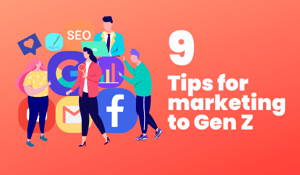- SERVICES
- HIGHER EDUCATION MARKETING
- ENGAGEMENT & ENROLLMENT MANAGEMENT
- STUDENT RECRUITMENT AGENCIES
- PROFESSIONAL EDUCATION & TRAINING
- WHO WE ARE
WHO WE ARE
Learn more about Keystone Education Group, including our leadership structure, why choose Keystone as your educational partner, and company press releases.
QUICK LINKS
- RESOURCES
RESOURCES
Find a range of helpful resources to help with your educational marketing. From on-demand webinars, reports & data, to customer testimonials and our downloadable media kit.
QUICK LINKS
- NEWS
- REQUEST A CALL

Why Marketing Automation Is Transforming University Student Recruitment
6 min read
|- Keystone Higher Education News
- Why Marketing Automation Is Transforming University Student Recruitment
Table of contents
Ensuring strong student recruitment year after year is a challenge faced by many colleges and universities. The options available to students today are continually growing, especially as mobility increases. For recruiters, dedicated nurturing and engagement processes are required to attract and capture potential students, who can easily switch their preferences. As Millennial and Generation Z (Gen Z) now form a large proportion of the market seeking higher education, engagement methods must evolve to incorporate more responsive, personalized and adaptive communication methods — enter marketing automation for student recruitment.
What is marketing automation?
A marketing automation program, suite, or package analyzes the data gathered about leads and potential applicants. With your input, it then automates tailored emails, campaigns, and other forms of marketing and communication to utilize your information on a much grander and more personalized scale than would be possible by human endeavor alone.
Today, it is relatively straightforward to set a series of ‘rules’ — like a choose-your-own-adventure game — as to how your system automatically converses with students, tailored to the data you hold on the individual and the choices they make along the way. Marketing automation chooses the next response at each step of a potential recruit’s journey and across multiple platforms, whether that’s each exchange in a chatbot conversation or staggered email and text message reminders.
However, while there is powerful, usable software that makes it easy for marketers to automate their marketing, this is still only half of the challenge. Like most tools, it takes ideas, analysis, and strategy to work marketing automation to its full potential, i.e., to increase conversion rates while freeing up valuable time for more human-centred tasks.
The benefits of consolidated marketing channels
Universities often rely on a mix of different marketing channels to reach their student audiences, whether using social media, promotional websites or attendance at physical events such as student fairs. Once data and leads are collected from these activities, keeping track of the various sources and data can be quite difficult without integration. This is especially challenging when systems used across mediums can differ so dramatically and are not always easy to get connected.
An important feature of marketing automation software is the ability to simplify the processes involved in integrating marketing into a single centralized database, without the need to invest heavily in technical support. Tools such as hosted lead forms can sync with automation software to ensure seamless delivery of leads, while leads from third-party sources will also be collected and delivered into the same central system — all at the same time. With minimal setup required, automation software can reduce many administrative headaches within seconds.
The ability to have visibility of all marketing activities is an integral factor driving the need for marketing consolidation. When multiple individuals are involved with the student recruitment process, transparency across the value chain can dramatically improve efficiency and results. Student leads often get lost or misplaced between documents and platforms. Inter-team communication can improve significantly, leading to an overall increase in responsiveness.
When marketing is consolidated, all stakeholders will have a clear global view of activities and be more able to spot any strategic changes that need to be made. Without the incorporation of some level of automation and consolidation into their strategy, recruiters occupied with repetitive administrative tasks can potentially lose out when it comes to time spent on engaging and attracting students.
Increasing conversion with automatic lead nurturing
Productivity leaps by around 14.5% for organizations that utilize marketing automation to track and convert leads. That’s because automation is known to potentially boost the number of qualifying leads by potentially immense proportions.
And partly it’s because the software takes a large proportion of the manual workload off your marketing team so that they can concentrate on strategizing and on interacting with potential students who need the most attention. The time and budget saved by automating market research and analytics, lead nurturing, and content scheduling, can be redirected to providing personalized guidance to students at the later stage of the recruitment funnel.
And because it's all done in the box, automation is designed to grow with your success. In other words, the increase in quality leads that you convert following their identification and nurturing in the system will not put extra strain on your department.
Automating marketing communications for recruitment
You may think communicating with students is a quintessentially human task, but the rapidly increasing intelligence of automatic communication tools and chatbots is making this less so. Again, this means admissions officers can free up space for other tasks and perhaps even dedicate time to more personal one-on-one communication to help guide prospective students along their ‘journey.’ But how exactly do these new tools communicate effectively without appearing inauthentic?
Navigating the need for rapid responsiveness
A chatbot is one commonly used form of instant communication, a rudimentary artificial intelligence (AI) that communicates with users by voice or text . In fact, "bots" such as Alexa, Siri, and Cortana are all household names today due to their widespread global use. More common still are the nameless or uniquely named dialogue boxes you find on retail and service websites that pop up to offer help with your inquiries. But why are these artificial tools so popular?
When it comes to student recruitment, the present generation of prospective students may appreciate the ability to converse freely about your study programs without the added pressure of real human interaction. And they’ll appreciate instantaneous responses rather than waiting for the next human response. Especially when it may involve a person who is in another country or region. Providing immediate access to information now holds as much currency as authenticity itself to many Generation Z users.
“In the end, users just want a quick answer,” says Salesforce’s chief scientist, Richard Socher. “[O]riginally people thought they wanted to talk to a person because the alternative was to go through a ten-minute menu or to listen to ten options and then have to press a button – that's not fun, and it’s not fast and efficient.”
From a virtual friend that keeps you company during bouts of insomnia to brand mascots made ‘real' through the capacity to converse with you online, the ever-broadening scope of the instant communication is a testament to almost science-fiction levels of technological progress. And with Gen Z embracing these types of snippet-based instant communications over more traditional modes, the future is likely to feature even more chat-based.
Personalized, automatic student communication
Chatbots aren't the only tech-tool changing the way recruiters communicate with students. Student recruitment is frequently becoming an international initiative. If a new student lands on your website in the middle of the day wherever they are, it could very well be the middle of the night in your location. Without automation, this student may not receive an answer for many hours, or sometimes even days after. While receiving an email response within a few days used to be the norm, it is not today. Expectations are high, and within 24 hours, a prospective student may already have switched interest to another institution.
This is where email marketing automation comes in, improving both responsiveness and engagement. Many providers now offer software that delivers both a built-in student lead nurturing and tailored communications strategy — 24 hours a day, seven days week. With pre-loaded email responses and the ability to fully segment answers and customize, these systems can automatically launch a whole series of communications, catering to specific needs and questions of individual students.
Automation is especially relevant in recruitment when the initial stage of enquiry usually involves repetitive questions that can be easily broken down into a small cluster of topics. What better to bridge the gap than a thoughtfully-programmed automated email response, that is essentially no different from those sent manually.
5 Ways Marketing Automation Is Transforming Student Recruitment |
|
1. Reduces your manual administrative workload — repetitive emails are automatically answered, 24 hours a day. |
|
2. Frees up time — recruiters can offer personalized services to students in the later stages of the recruitment funnel. Providing extra attention where it will have the greatest impact! |
|
3. Improves lead response time — no need to worry about keeping up communications across multiple time zones or catching up on an overloaded email inbox. |
|
4. Transforms general enquiries into engaged student leads — communication occurs in real-time, capturing student interest, and collecting vital information at the same time. |
|
5. Scalable & Affordable — marketing automation software is customizable but also scalable, often available at a fraction of the cost when compared to other methods. |
Many teams experience difficulty ensuring that all leads receive a basic informational response to incoming enquiries, let alone the delivery of a segmented or tailored lead nurturing strategy. With automation, by the time you enter the office the next day, marketing automation may have already answered numerous questions from your potential student leads, even moving them towards potential application. All while you, and your team were sleeping!
New leads can take the first steps on their journey with minimal personal input from the marketing office, freeing the team to deal more attentively with those emails and other communications that do require the personal touch.
With engagement paramount to successful recruitment, marketing automation is quickly becoming vital to success in higher education recruitment. It is likely to continue to grow, and we look forward to witnessing how higher education recruitment evolves alongside it.
Keystone Academic Solutions develops marketing automation software designed specifically for higher education institutions. Find out how you can reduce your manual workload by up to 70% with SmartHub. For more information, please get in touch here.
More about:
Related Tags
Just For You
Top Picks
Higher Ed Chats Podcast
Listen to the latest episodes of our Higher Ed Chats Podcast - new format for 2024. Hear from Higher Ed thought-leaders from around the world!
Who Will Win The Keystone Awards?

Watch the Keystone Awards Ceremony to see the winners of the 2025 Keystone Awards!
Subscribe
to get the latest news and updates





